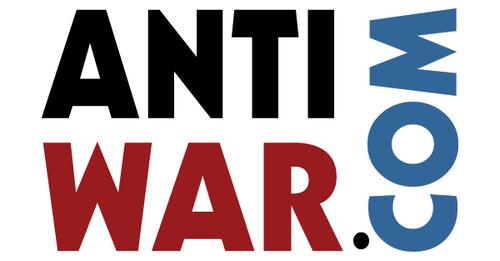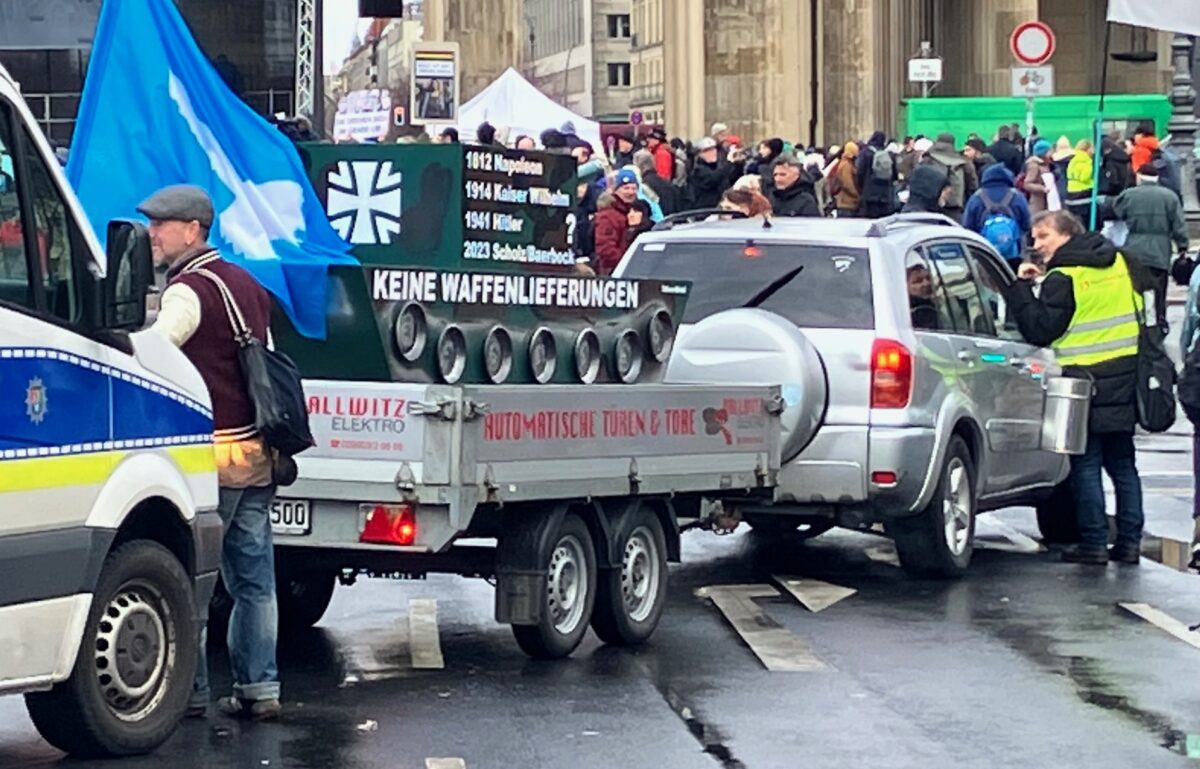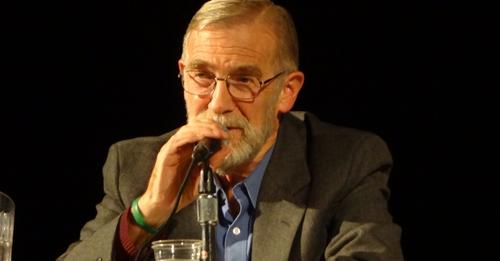‘Live on the Fly’ on WBAI (Pacifica): “UKRAINE A YEAR AFTER”
Ray McGovern & Russian Diplomat Dmitry Polyansky interviewed by Randy Credico & Joe Lauria: focus on recent UN Security Council deliberations on the sabotage of Nord Stream and censuring Russia.
The Importance of Non-Yes People

If CIA chief Burns is telling Biden what he told CBS today https://youtube.com/watch?v=HN4bgqKq2MU the Biden Blinken Sullivan & Nuland firm is in for rude awakening. Burns has forecast ‘reduced tempo in fighting as winter sets in’. Biden needs to hear from Non-Yes people:
https://original.antiwar.com/Veteran-Intelligence-Professionals-for-Sanity2/2023/01/25/leopards-vs-the-russian-bear/
Are Scholz & Baerbock on Their Way Aus?


emails and photos from Saturday Demo in Berlin
The following just in from two German friends in Berlin:
Dear Ray,
On Saturday about 50,000 people demonstrated at Brandenburg Gate against sending more weapons to Ukraine and for beginning negotiations immediately by “making an offer” to the Russian government.
I believe that the recent work of Seymour Hersh regarding the pipeline, which has been widely reported here, along with the testimony at the UN Security Council Tuesday by Professor Jeffrey Sachs and you may have played an important role in motivating and mobilizing people from all over Germany to take part in the Saturday demonstrations.
This unexpectedly large turnout stands in contrast to the turnout of not more than 10,000 for the rally at Brandenburg Gate on Friday night in favor of Germany sending more arms to Ukraine, which was called by Ukrainian organizations, the Berlin leadership of the three Ampel-Coalition parties (SPD, Green and Left) and NGOs like Campact and Fridays for Future.
++++++++++++++++++++
Dear Ray,
The initiators of the peace demonstration https://aufstand-fuer-frieden.de/ (Alice Schwarzer and Sahra Wagenknecht) have put their manifesto for peace https://www.change.org/p/manifest-f%C3%BCr-frieden on change.org. Look how many continue to sign it, although it is not to be found https://www.nachdenkseiten.de/?p=94133 if one searches for it on change.org.
Since I was at the demonstration I send along two photos in the attachment. By the way, the driver of the car got a criminal complaint “Strafanzeige” by the police because of the inscription on the tank, comparing Scholz and Baierbock with Hitler.
1812 Napoleon
1914 Kaiser Wilhelm
1941 Hitler
2023 Scholz/Baerbock?
KEINE WAFFENLIEFERUNG (NO DELIVERY OF WEAPONS [to Ukraine]
RAY MCGOVERN INTERVIEW – THE NORD STREAM PIPELINE ATTACK
Saturday morning (Feb. 25) with Garland Nixon (1 hour+)
The Last Chance to Avoid World War III?

Ray interviewed by Scheer Post, Feb. 23, 2023
Robert Scheer and Ray McGovern are contemporaries – each grew up in the east Bronx, but in different immigrant circles. Decades-worth of professional experiences, initially coming from opposite poles, now find them on the same side of the barricade – together and deeply concerned.
Professor Jeffrey Sachs and Ray Address UN Security Council
under the rubric ‘Threats to International Peace and Security’
February 21, 2023
(Each was asked to include discussion of the Hersh report on Nord Stream.)
https://media.un.org/en/asset/k1w/k1wbhft76f
Sachs: minute 21:00 to 31:23; McGovern: min. 31:24 to 48:46
A discrete segment of Ray’s indiscreet remarks has just been posted on YouTube:
Author Benjamin Abelow Interrogates Ray on Russia, Ukraine, etc

On ‘Tommy’s Podcast’, Feb. 9, 2023
https://rumble.com/v29sl50-ukraine-war-update-dr.-benjamin-abelow-and-ray-mcgovern-tpc-1093.html
Abelow wrote the highly readable, 62-page How the West Brought War to Ukraine. Earlier, he made some interesting comments on US Intelligence community & conflict with Russia – Glenn Diesen, Ray McGovern, and Alexander Mercouris of December 5, 2022.
Who really blew up the Nord Stream pipeline?
Jeffrey Sachs interviewed by UnHerd, Feb. 13, 2023 (43 min.)

